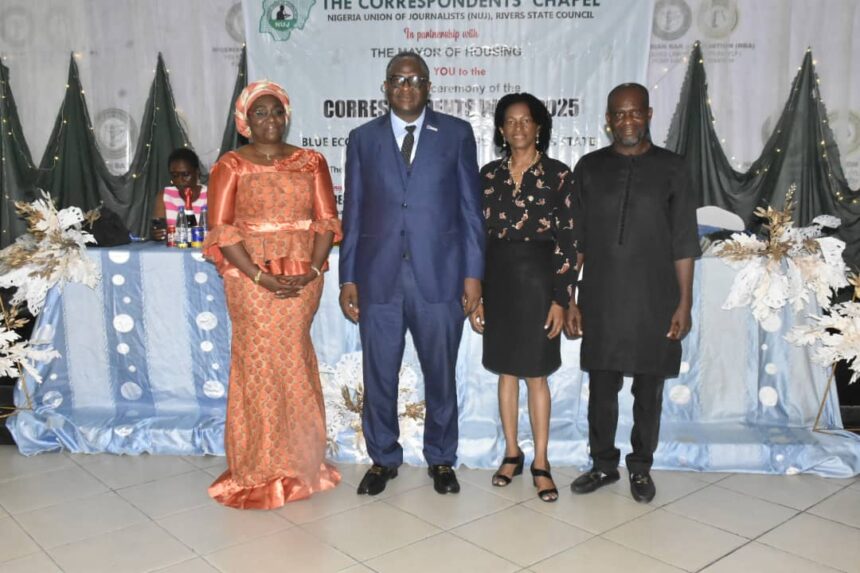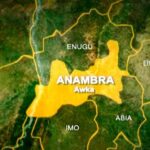For the government of Nigeria and the many coastal states of the nation to reap the benefits of $14-trillion global blue economy potential they must first clean up the oil pollution of the Niger Delta environment.
This is the view of Prof Silva Opuala-Charles, economist and President of Garden City Premier Business School which he presented in his address at the opening ceremony of the Correspondents’ Week of the Correspondents’ Chapel of the Nigeria Union of Journalists (NUJ) Rivers State Council on Monday in Port Harcourt.
ALSO READ: Why houses are unaffordable in Nigeria —Experts
Nigeria has nine coastal states bordering the Atlantic Ocean, namely: Akwa Ibom, Bayelsa, Cross River, Delta, Edo, Lagos, Ogun, Ondo, and Rivers with over 853km coastal line much of which has been affected by pollution from decades of crude oil and gas exploration and exploitation.
According to Opuala-Charles it is not clear whether Nigeria has a blue economy or a red economy because the nation’s rivers are heavily threatened by about 13-million barrels of crude oil spills recorded in about 7,000 incidents with the Niger Delta being the epicenter of these incidents.
So for him, the conversation around the blue economy in Rivers State and the Niger Delta would remain unrealistic without first addressing the widespread environmental pollution and degradation caused by decades of oil exploration.
The former Commissioner of Finance in Bayelsa State said the Niger Delta region could not genuinely pursue a blue economy when its waters were stained by oil spills and its marine life was devastated by pollution.
Speaking on the theme of the week: Blue Economy: Starting Steps for Rivers State’, he said: “We say blue economy, but what is blue about our water? The waters are dark, oily, and toxic. The creeks are dead zones. Our fishermen bring back nothing but stories of hardship.
“Before we can talk about tapping into the ocean economy, we must clean up the mess first.
“You cannot talk of aquaculture when the fish stock is dead. You cannot speak of marine tourism when your waters reek of crude oil. We must tell ourselves the truth – this is not a blue economy, this is a red economy soaked in pollution,” he stated.
Opuala-Charles referenced a 2023 Reuters report which estimated that it would take $12 billion and 12 years to clean up the entire Niger Delta region saying that any government or agency speaking about the Blue Economy must first prioritize a comprehensive clean-up campaign, starting with the most affected riverine communities.
“We should not start with policy documents and media launches. We must start with a mop. Clean the rivers, clean the creeks, restore the mangroves, then talk about growth,” he emphasised.
He also decried the absence of a tailored Blue Economy policy framework for Rivers State, warning that relying on federal policies alone will sideline the peculiar environmental and socio-economic needs of the region.
“Where is the policy? Where is the structure? Where is the funding plan? A Blue Economy agenda must not be a cut-and-paste from the federal level. We need a Rivers-specific approach that puts clean-up and restoration at the center,” he said.
In terms of potential, Prof. Opuala-Charles acknowledged that Rivers State was richly endowed with vast inland waterways, untapped marine biodiversity, and aquaculture potential, but stressed that environmental neglect continues to cripple economic opportunities.
He proposed that the state government should launch a State Blue Economy Council involving stakeholders from oil host communities, academia, private sector, and civil society; “Prioritise aquaculture training and investment for young people in coastal areas; Develop a sustainable marine transportation master plan; Allocate budgetary provisions to environmental remediation and coastal protection; and lobby for international funding to support clean-up projects in areas affected by oil spills.
“Let us move from dependency on dirty energy to sustainable economic alternatives. But let’s not pretend. There is no Blue Economy without a green environment. No fish can thrive in poisoned waters. No investor will build a resort on a polluted shoreline. The first step is clean-up”, he stated.
He criticised the lack of a defined blue economy policy for Rivers State, warning that vague talk without concrete action plans and a clearcut structure would only create more confusion.
“Rivers State cannot afford to piggyback on federal documents that do not address our unique environmental damage. We need a locally tailored strategy – one that puts cleanup, coastal protection, and community participation at the center,” he said.
Opuala-Charles recommended that the state urgently establish a Rivers State Blue Economy Council made up of representatives from riverine communities, academia, private sector experts, and civil society groups. The Council, he said, should oversee all activities tied to the Blue Economy, from budgeting to monitoring and accountability.
He also called for direct investments in sustainable aquaculture, training of youths in marine-based enterprises, revival of the artisanal fishing industry, and a state-wide campaign to restore degraded creeks and wetlands.
“Rivers State has the potential to be the aquaculture hub of West Africa. We have the coastline, the population, and the maritime culture. But we have failed to leverage that because we have ignored the environment. If you kill your ocean, you kill your economy,” he warned.
Earlier in his welcome address the Chairman of the Correspondents’ Chapel of the Nigeria Union of Journalists (NUJ), Rivers State Council, Comrade Amaechi Okonkwo said the choice of the theme was to open the eyes of the state government and private investors to potentials of the blue economy in the state.
He said that with the creation of the Ministry of Marine and Blue Economy in August 2023 and its focus on the ‘sustainable use of ocean resources for economic growth, improved livelihoods, and job creation while preserving marine ecosystems’ it was pertinent for Rivers State which possessed significant blue economy potentials to key into that vision.
Rivers State reportedly has significant blue economy potential, particularly in fisheries, tourism, and maritime transport, contributing about 35% to the state’s GDP. To unlock this potential, infrastructure development, effective governance, sustainable practices, and stakeholder engagement are crucial.
“We believe that to be able to harness the rich opportunities in its blue economy, there are some necessary steps the state needs to take to align with the vision and goals of the federal administration for creating that ministry at this time.
“That’s why we have invited eggheads to help us dissect the theme and point the way forward for the state government and private investors on how to sustainably explore the opportunities in that sector, first for the entire populace and then, the teaming unemployed youths of the state,” he said.
The Correspondents’ Week was attended by top media executives, academics, experts, government officials, and civil society stakeholders.






